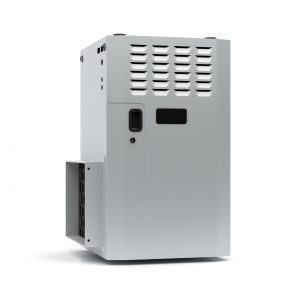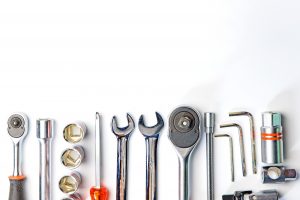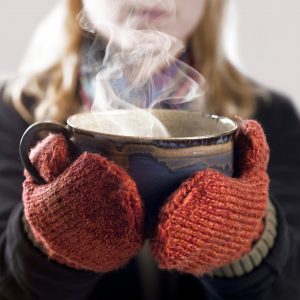We are in unprecedented times here in our great nation, state, and city. Ambient Comfort has been serving our community for years and as we navigate the coronavirus (COVID-19) in our region, we aim to continue serving the needs of our customers and team members, while doing our best to protect the community at large.
Safety is the number one priority at Ambient Comfort every day. In helping to ensure functioning heat and cooling, our team plays a role in maintaining the health and safety of our community. Therefore, we will remain open but make adjustments to our normal operating procedures, continuing to follow Centers for Disease Control and Prevention (CDC) guidelines during this time, including social distancing. These extra safety measures are outlined below and will remain in place until further notice.
If you are in need of service, please call our main line at 856-213-6586 for service at any hour. Local staff are available to answer the phones from 8 am to 5 pm Monday-Friday. We have an after-hours answering service as well, so you will be able to speak with someone directly to take care of your needs.
With the safety of our customers and employees of the utmost importance, we will be following cleaning protocols recommended by the CDC and state agencies. Additionally, any team member that has a fever, is showing signs of sickness, or who has been known to be exposed and not protected will be asked to remain at home.
Service call precautions
At this time, we are open and running calls to homes and businesses. We want to be there for you in case of emergencies and make sure we keep our customers safe and comfortable at home and work. However, the safety of our employees is a key priority, and we will take caution to protect the health of our team members.
When you call in, our office staff will be asking if anyone in the home has traveled outside of the country, has a fever, was diagnosed with or had exposure to the virus. This will enable us to be proactive with our team’s response and level of protection.
In most cases we can troubleshoot equipment from outside, in a crawl space, or in attics and basements with minimal face-to-face contact. We will be following protocols to maintain a safe work environment by wearing gloves, wearing masks if needed, and disinfecting work areas in the home and in our trucks after each call.
You may be asked by a technician to speak via video or FaceTime, and we may ask that you help control the thermostat while we are stationed at the equipment. We appreciate your flexibility and collaboration so that we may provide the services you need.
Our normal process is for repair work to be approved via signature before beginning work. In order to reduce contact, we will be suspending this requirement at this time so you will not be asked to sign a phone or tablet by our team.
We will continue to review and monitor these new policies and will send out communications via email and social media if our plan changes. We greatly appreciate our customers and team members here at Ambient Comfort, and will continue to balance the health of our customers and employees with your continued need for service. Please do not hesitate to call us with any questions. We look forward to a day when we can shake your hand again. Thank you and be well.
Sincerely,
Anthony Gaetano
Continue Reading
 Air purification systems are all the rage these days and for good reason! They’re a powerful way to mitigate germs of all sorts while keeping your home free of odors and any other microbial particles that could impact your health. However, while many homeowners might like the appeal of an air purifier in their home, they don’t actually know how they work and hesitate when it comes time to invest in an indoor air quality machine. So, in light of trying to spread information that’s accurate and useful, we’d like to talk about these systems and how they work.
Air purification systems are all the rage these days and for good reason! They’re a powerful way to mitigate germs of all sorts while keeping your home free of odors and any other microbial particles that could impact your health. However, while many homeowners might like the appeal of an air purifier in their home, they don’t actually know how they work and hesitate when it comes time to invest in an indoor air quality machine. So, in light of trying to spread information that’s accurate and useful, we’d like to talk about these systems and how they work.
 The team here at Ambient Comfort is concerned primarily with keeping you cool and comfortable for as long as possible, at the most affordable price possible. That requires more than just calling us when you need repairs or you notice something strange about your system. It means being proactive and when you’re taking your AC out of hibernation for the year, there is a wide variety of things you can do to make the transition easier and more effective.
The team here at Ambient Comfort is concerned primarily with keeping you cool and comfortable for as long as possible, at the most affordable price possible. That requires more than just calling us when you need repairs or you notice something strange about your system. It means being proactive and when you’re taking your AC out of hibernation for the year, there is a wide variety of things you can do to make the transition easier and more effective. We don’t expect you to be able to answer that question right away. In fact, most homeowners have no idea how efficiently their system is running at all, mainly because as long as it gets the job done, what’s the point of noticing how efficient it is?
We don’t expect you to be able to answer that question right away. In fact, most homeowners have no idea how efficiently their system is running at all, mainly because as long as it gets the job done, what’s the point of noticing how efficient it is? Heaters are not supposed to make noise. No, this isn’t dependent on the type of furnace you have, from boilers to ductless heat pumps, they’re all supposed to operate relatively quietly. That’s why these sounds are so important to notice—they can clue you in on a sinister problem that’s starting to develop within your heater.
Heaters are not supposed to make noise. No, this isn’t dependent on the type of furnace you have, from boilers to ductless heat pumps, they’re all supposed to operate relatively quietly. That’s why these sounds are so important to notice—they can clue you in on a sinister problem that’s starting to develop within your heater. Good morning class, today we’ll be discussing some of the intricacies with furnace safety and how you can have your own furnace safety checklist!
Good morning class, today we’ll be discussing some of the intricacies with furnace safety and how you can have your own furnace safety checklist! Heater breakdowns are the epitome of an emergency. Our community here in New Jersey depends on heaters to the point where sometimes our lives depend on them, and when temperatures drop below freezing—having a heater break down can be downright terrifying.
Heater breakdowns are the epitome of an emergency. Our community here in New Jersey depends on heaters to the point where sometimes our lives depend on them, and when temperatures drop below freezing—having a heater break down can be downright terrifying. Boilers, just like every other heating system available, aren’t perfect. They can suffer from common problems that other heaters usually do, like lack of heating and interior burner problems, but they can also suffer from unique issues that homeowners aren’t always prepared for.
Boilers, just like every other heating system available, aren’t perfect. They can suffer from common problems that other heaters usually do, like lack of heating and interior burner problems, but they can also suffer from unique issues that homeowners aren’t always prepared for. Before you get too carried away, remember that we’re just your friendly, neighborhood HVAC contractor. While we can’t necessarily help you pay your high heating bills, we can try to explain why those bills are so high and some solutions to mitigate the problem going forward!
Before you get too carried away, remember that we’re just your friendly, neighborhood HVAC contractor. While we can’t necessarily help you pay your high heating bills, we can try to explain why those bills are so high and some solutions to mitigate the problem going forward!